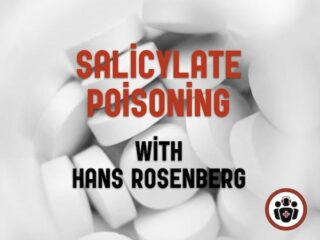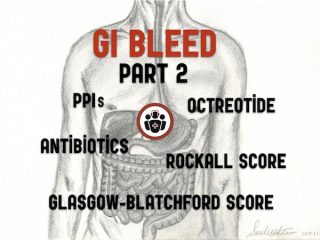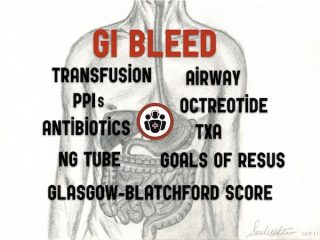Most Recent
BCE 64 Salicylate Poisoning
In this EM Cases Best Case Ever Hans Rosenberg and Rajiv Thavanathan discuss recognition and management pearls and pitfalls in salicylate poisoning. They answer question such as: What are the most important diagnostic clues of salicylate poisoning in the patient who presents with undifferentiated fever and altered level of awareness? What is the best timing and ventilation strategy for intubation? Which electrolyte abnormalities do you need to be on the lookout for? and many more...
Journal Jam 11 Post Contrast Acute Kidney Injury – PCAKI
Lauren Westafer joins Justin Morgenstern, Rory Spiegel and Anton Helman in a deep dive discussion on the world's literature on Post Contrast Acute Kidney Injury (PCAKI) in this Journal Jam podcast. Hospitals continue to insist on time consuming, and potentially dangerous protocols for administration of fluids to patients with renal dysfunction prior to CT IV contrast despite the lack of evidence that Contrast Induced Nephropathy (CIN) even exists. Would you choose a different imaging modality if your radiologist suggested that a patient with renal dysfunction who required a CT with IV contrast should forgo the contrast risking a missed diagnosis?
Ep 103 Preventing Burnout and Promoting Wellness in Emergency Medicine
Burnout – it’s the elephant in the room that we all know about but prefer not to discuss. Yet according to a 2013 Medscape survey, 40% of physicians reported burnout in U.S. In this episode, Sara Gray and Chris Trevelyan present an honest approach to preventing burnout and promoting wellness, outlining strategies both at the individual and systems levels. They explain why wellness matters, how you can strive to achieve it and how to recognize when you or a colleague are unwell so that you can get the help you need...
BCE 63 Failing Up after Medical Error
Dr. Sarah Gray tells us the story of her worst case ever and what she learned from it. About 50% of North American physicians involved in a serious medical error report increased anxiety for future errors, decreased confidence in their job, decreased job satisfaction, insomnia, PTSD, panic disorder – the list goes on. Dr. Gray shares how and why many of us react to medical error - the embarrassment, the shame, the guilt and sense of failure. She then explains the notion of acceptance that we all fail, that perfection is a myth, and how she learned that "failing up" after of the most difficult case of her career is the best choice after making a medical error...
Episode 102 GI Bleed Emergencies Part 2
In Part 2 of our two part podcast on GI Bleed Emergencies Anand Swaminathan and Salim Rezaie kick off with a discussion on the evidence for benefit of various medications in ED patients with upper GI bleed. PPIs, somatostatin analogues such as Octreotide, antibiotic prophylaxis and prokinetics have varying degrees of benefit, and we should know which ones to prioritize. We then discuss the usefulness of the Glasgow-Blatchford and Rockall scores for risk stratification and disposition of patient with upper GI bleeds and hit it home with putting it all together in a practical algorithm. Enjoy!
Episode 101 GI Bleed Emergencies Part 1
In this Part 1 of our two part podcast on GI bleed emergencies we answer questions such as: How do you distinguish between an upper vs lower GI bleed when it's not so obvious clinically? What alterations to airway management are necessary for the GI bleed patient? What do we need to know about the value of fecal occult blood in determining whether or not a patient has a GI bleed? Which patients require red cell transfusions? Massive transfusion? Why is it important to get a fibrinogen level in the sick GI bleed patient? What are the goals of resuscitation in a massive GI bleed? What's the evidence for using an NG tube for diagnosis and management of upper GI bleeds? In which patients should we give tranexamic acid and which patients should we avoid it in? How are the indications for massive transfusion in GI bleed different to the trauma patient? What are your options if the bleeding can't be stopped on endoscopy? and many more...







